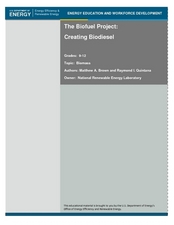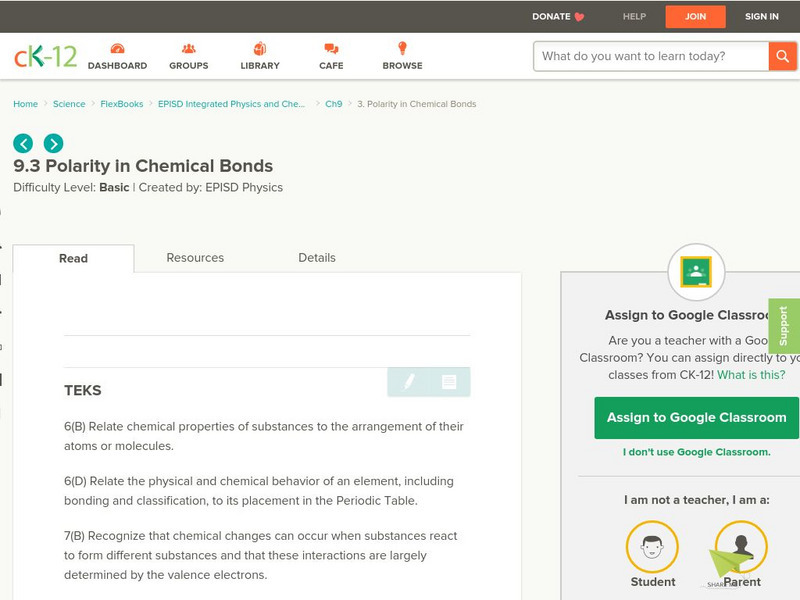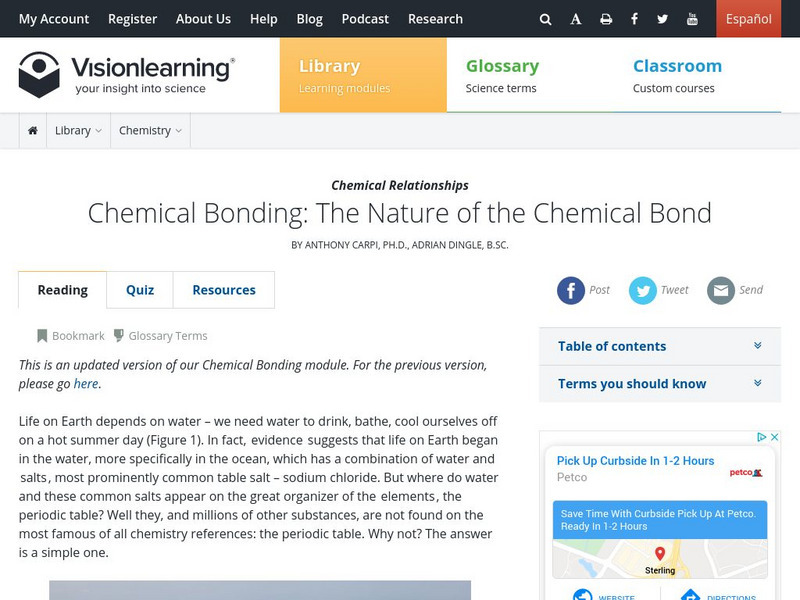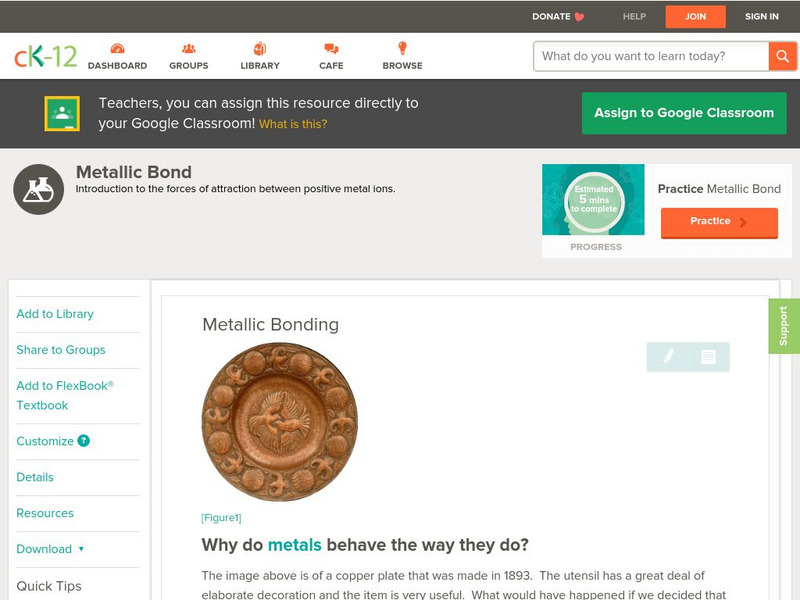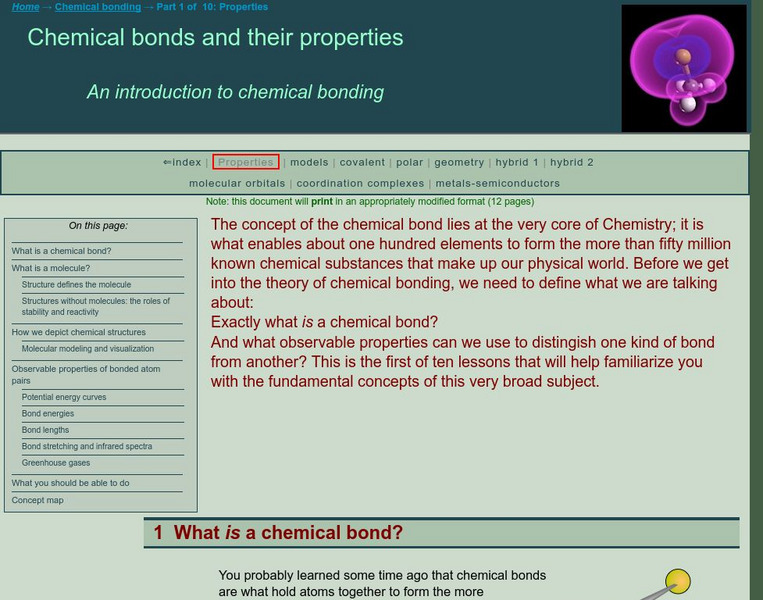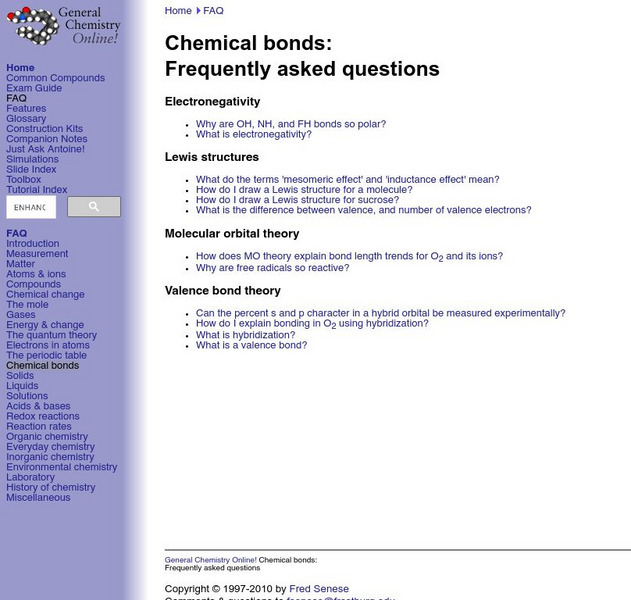Curated OER
Properties of Matter (Biomaterial Through Nanotechnology)
Students investigate friction between different surfaces. In this physics lesson, students research biomaterials that can reduce friction. They calculate efficiency using a mathematical formula.
Curated OER
The Bio-fuel Project: Creating Bio-diesel
Students investigate bio-fuel. In this investigative lesson, students create bio-fuel from vegetable oil waste. Students will analyze, predict, collect and synthesize data from their experiments with bio-fuel.
Curated OER
Lesson on Proteins
Students examine the importance of proteins including their function and structure. In this protein lesson students play a game to help them better understand proteins.
Curated OER
Ethical Decision Making in Biology
Students explore a model that illustrates the spread of HIV through an adolescent population. Acting in the role of epidemiologists, students explore the dilemmas of HIV infection presented by a simulation. Students produce a play, skit,...
Curated OER
Water and Diffusion
In this water and diffusion activity, students will explore the characteristics of water and the water molecule. Students will also answer questions about diffusion and the movement of materials due to concentration differences. This...
Curated OER
EGG-cellent POLYMER PACKAGING DESIGN
Students investigate the concept of a polymer using an experimental design of protecting an egg in a bookbag. They test the properties of polymers and form an educated solution to the proposed problem. Then they describe the steps used...
Curated OER
Micro-Magic With Sticky Ions
Students view a video about the formation of precipitates. They complete a worksheet that asks them to identify what makes a compound form and what holds it together.
Concord Consortium
Concord Consortium: Molecular Workbench Showcase: Chemistry, Chemical Bonds
Simulations to show students the nature of chemical bonds. Simulations include an explanation of stereochemistry, atomic orbitals, chemical polarity, formation of an atom, and a summary quiz.
CK-12 Foundation
Ck 12: Polarity in Chemical Bonds
[Free Registration/Login may be required to access all resource tools.] Students will determine the polarity of a chemical bond using the electronegativity chart, and then distinguish between nonpolar covalent, polar covalent, and ionic...
Khan Academy
Khan Academy: Biology: Chemistry of Life: Chemical Bonds
Review over covalent, hydrogen, and ionic bonding in this article. Learn how molecules are held together by chemical bonds.
Khan Academy
Khan Academy: Chemistry of Life: Skill Check: Chemical Bonds and Reactions
Use this skill check to test your understanding of chemical bonds and reactions.
Vision Learning
Visionlearning: Chemistry: The Nature of the Chemical Bond
This site talks about ionic, polar covalent, and non-polar covalent bonding.
CK-12 Foundation
Ck 12: Chemistry: Chemical Bond
[Free Registration/Login may be required to access all resource tools.] Definition of a chemical bond, why they form and the different types.
Upper Canada District School Board
Tom Stretton's Advanced Placement Chemistry: Chemical Bonding
Take on this self-guided advanced level e-text, and learn about chemical bonding and molecular structure.
Simon Fraser University
Chem1 Virtual Textbook: Models of Chemical Bonding: Why Do Chemical Bonds Form?
This extensive overview on chemical bonding seeks initially to answer the question, why do chemical bonds form? Information is provided on classical models of chemical bonding and quantum mechanical models of the chemical bond.
Simon Fraser University
Chem1 Virtual Textbook: Models of Chemical Bonding: Why Do Atoms Join Together?
The General Chemistry Virtual Textbook, or Chem 1, is broken into several sections covering various aspects of topics related to chemistry. This section deals with chemical bonds and seeks to answer the question, why do chemical bonds form?
CK-12 Foundation
Ck 12: Chemistry: Metallic Bond
[Free Registration/Login may be required to access all resource tools.] Describes the metallic bond and properties of metals. Includes review questions.
CK-12 Foundation
Ck 12: Physical Science: Chemical Bond
[Free Registration/Login may be required to access all resource tools.] Definition of a chemical bond, why they form and the different types.
NBC
Nbc Learn: Chemistry of Pumpkin Pie
Most recipes for Thanksgiving pumpkin pies call for clove and nutmeg - two distinct spices that come from two nearly identical molecules: eugenol and isoeugenol. "The Chemical Bond Between Cloves and Nutmeg" explains how the strength and...
Simon Fraser University
Chem1 Virtual Textbook: Molecules and the Properties of Bonded Atoms
College-level site goes into great detail about chemical bonding properties, as far as energies, structure, angles, and length. Infrared absorption, the greenhouse effect, and global warming are addressed to exemplify bond length...
Frostburg State University
General Chemistry Online: Chemical Bonds Faq
Find answers to common questions about chemical bonds. Recognize molecular orbital theory and know how to draw a Lewis structure.
Crescent Public Schools
The Internet Science Room: Oxidation Numbers and Chemical Bonding
Through animated diagrams and illustrated examples, students can further their understanding of chemical bonds and oxidation numbers.
Nobel Media AB
The Nobel Prize: The Nobel Prize in Chemistry 1954
Read about Linus Carl Pauling (1901-1994), the recipient of two Nobel Prizes, and his research into the nature of the chemical bond which earned him recognition in the world of chemistry.



